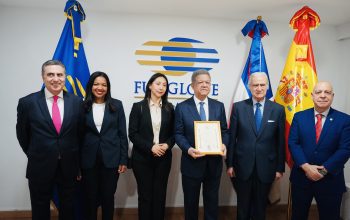news
GFDD Statement During Historic UN Commission on Sustainable Development Focuses on People’s Empowerment
February 18, 2014
When the Commission for Social Development (CSD) met for its 52nd session from 11 – 21 February at UN Headquarters in New York, world leaders and civil society actors, including GFDD and FUNGLODE, had a big focus: How to harness the power of people to achieve sustainable development goals.
The United Nations has long held empowerment at the core of its development efforts, but the 52nd Commission entitled “Promoting empowerment of people in
achieving poverty eradication, social integration and full employment and decent work for all” , is the first to explicitly and specifically target the issue. During the session, the Commission is expected to adopt for the first time in the United Nations history a resolution on empowerment of people in the context of social development.
“Promoting empowerment is essential not only for social development, but for all three dimensions of sustainable development. When people are empowered they are better prepared to take advantage of opportunities. They can create, build, invest and innovate. When people are empowered, they become agents of change,” said UN DESA’s Under-Secretary-General Mr. Wu Hongbo.
It
was within this international context that GFDD was able to contribute with an oral statement to the Commission on February 18, 2014 entitled; "Boosting local productivity, social cohesion and education opportunities on a local level as keys to poverty eradication and decent work for all." The Foundation, represented by Marc Jourdan, was able to assert that, in today’s globalized world, local economic stability is still essential for domestic consumer and
investor confidence — which ultimately keeps the door open to larger corporations. However, GFDD cautioned that in order to maintain a healthy environment where corporations and small businesses can be mutually beneficial, a careful balance must be struck.
Recognizing that small businesses are a continuing source of dynamism for a nation’s economy, the Global Foundation has led the call for a new approach to sustainable development: a local development paradigm
that would: i) – seek to strengthen local productivity and communities’ social fabric; ii) – offer reliable education and professional development on a local level; and iii) – promote programs within both the public and the private sector that work towards social inclusion.
Using illustrations of relevant social and environment initiatives, "Re-Create" and "Eco Huertos", as well as a renowned Dominican Ban
Reservas Volunteer Program and other examples, GFDD showed how local productivity and social inclusion can easily be combined to reduce income inequality and social disparity and have a positive impact in the Dominican Republic and other nations.
Promoting empowerment of people in achieving poverty eradication, social integration and full employment and decent work for all
The statement concluded that the education and engagement of local communities, together with the development of local economies, clearly constitutes a vital development paradigm for ensuring the promotion of sustainable development in both developed and developing countries across the world. However, as can be seen
from the actions of GFDD, this transition will only be effective if it is supported at both the national and the local levels by relevant entities in both the public and the private sectors.
GFDD then invited the delegates gathered at this Commission to explore the role that these stakeholders can play in making this local development paradigm a reality, and in doing so promoting empowerment of people in achieving poverty eradication, social integration, full employment
and decent work for all. (Read full statment here).
About the Commission on Sustainable Development
Established in 1946, The Commission has been the key United Nations body in charge of the follow-up and implementation of the Copenhagen Declaration and Programme of Action. Each year since 1995, the Commission has taken up key social
development themes as part of its follow-up.
The annual CSD allows Member States, civil society organizations, and other key international bodies to engage in a substantive dialogue on policies and strategies that effectively promote empowerment and its role in facilitating other social development goals. The dialogue aims to inform national and international policy debates, including the ongoing debates on the post-2015 international development agenda and the future
sustainable development goals.
Related Links:
http://social.un.org
www.eco-huertos.org
www.r3crearte.org







